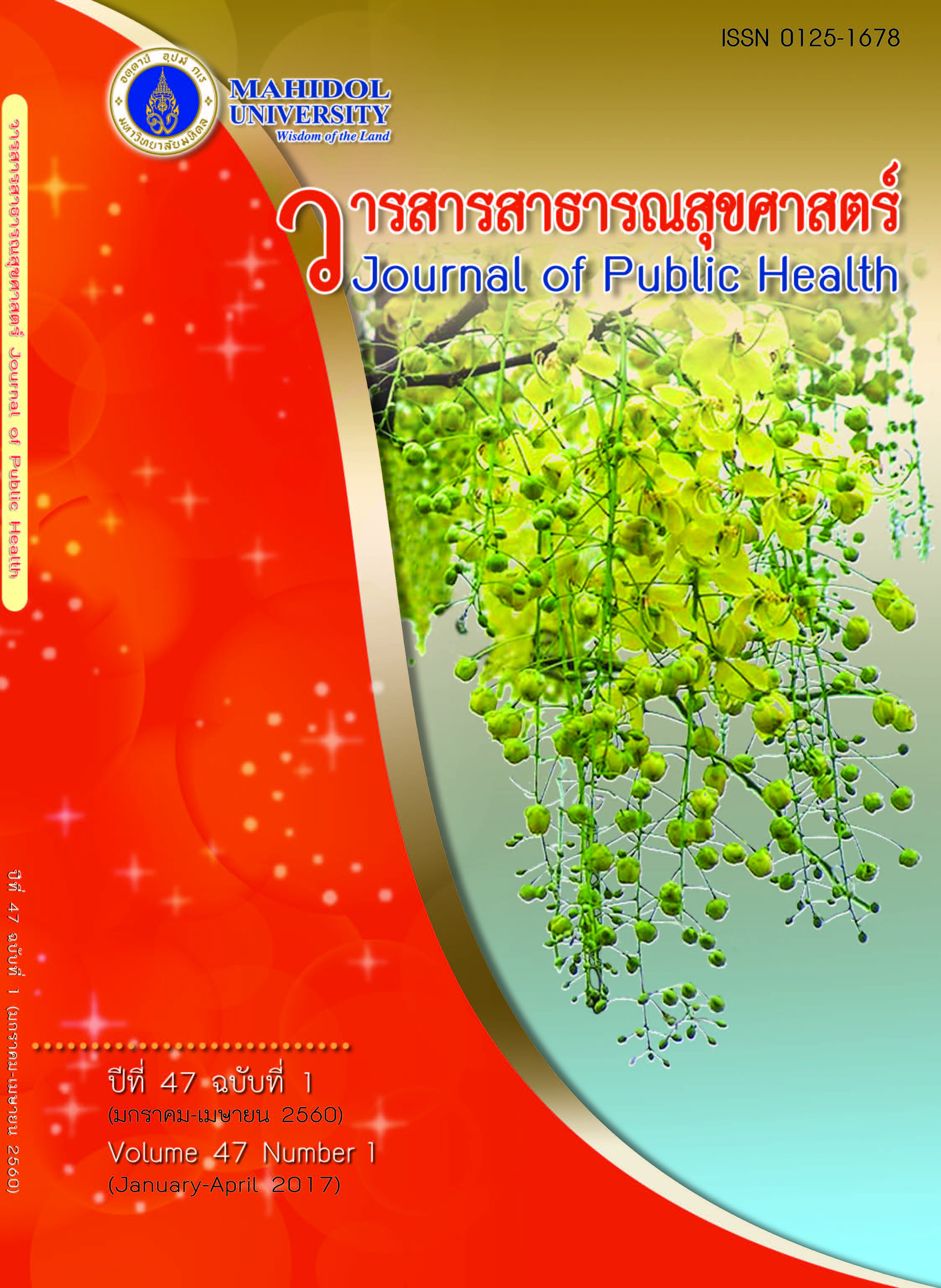Multilocus sequence typing (MLST): เทคนิคระดับโมเลกุลเพื่อติดตามความปลอดภัยในอาหาร
Keywords:
, ิธีจำแนกโดยรหัสพันธุกรรมหลายตำแหน่ง, จุลชีพก่อโรคโดยอาหารเป็นสื่อ, ความสัมพันธ์ของพันธุกรรม, ระบาดวิทยาโมเลกุล, Multilocus sequence typing, foodborne pathogens, genetic relationships, molecular epidemiologyAbstract
ปัจจุบันโรคติดเชื้อทางเดินอาหารถือเป็นปัญหาสาธารณสุขทั่วโลกโดยเฉพาะในประเทศแถบเขตร้อน วิธีการตรวจสอบแหล่งที่มาของการติดแบคทีเรียก่อโรคทางเดินอาหารสามารถทำได้โดยการศึกษาความสัมพันธ์ทางพันธุกรรมของสายพันธุ์ที่แยกได้จากผู้ป่วยโรคอุจจาระร่วงและที่แยกได้จากแหล่งต่างๆรวมทั้งอาหาร Multilocus sequence typing (MLST) เป็นวิธีการวิเคราะห์ทางพันธุกรรมและการจำแนกชนิดแบคทีเรียโดยใช้หลักความสัมพันธ์ของรหัสพันธุกรรมของยีนพื้นฐาน (housekeeping genes) ของแบคทีเรียที่แยกได้จากแหล่งต่างๆเพื่อวิเคราะห์ความใกล้ชิดของสายพันธุ์และใช้ในการระบุแหล่งการแพร่กระจายของเชื้อก่อโรค ข้อได้เปรียบที่สำคัญของวิธี MLST กับวิธีทางโมเลกุลประเภทอื่นคือสามารถเปรียบเทียบความสัมพันธ์ของสายพันธุ์ที่ศึกษากับสายพันธุ์อื่นจากทั่วโลกได้โดยผ่านฐานข้อมูลทางอินเทอร์เนต ในปัจจุบันนำวิธี MLST มาใช้อย่างแพร่หลายในด้านวิทยาการระบาดและวิวัฒนาการของแบคทีเรียก่อโรคในอาหารที่สำคัญหลายชนิด ข้อมูลที่ได้จากวิธี MLST สามารถนำไปใช้ประโยชน์ในการตรวจตราการปนเปื้อนแบคทีเรียก่อโรคในอุตสาหกรรมอาหาร ส่งผลให้ระบบรักษาความปลอดภัยในอาหารมีมาตรฐานสูงขึ้น
Multilocus sequence typing (MLST): Molecular technique for monitoring food safety
Foodborne infectious diseases are a worldwide public health burden particularly in tropical countries. Determining potential sources of infection has mitigated transmission of bacteria. Sources of bacterial enteric infection could be identified by genetic relatedness of strains isolated from patients with diarrhea and strains isolated from various sources including food. Multilocus sequence typing (MLST) is a genetic analysis used to identify bacterial strains based on nucleotide sequences of housekeeping genes of bacteria collected from various sources. MLST analysis allows understanding of genetic relationships and sources of bacteria transmission. The advantage of MLST over other molecular methods is the ability to compare genetic profiles of examined strains from individual laboratories to those from over the world through online database. At present, the MLST approach has been successfully applied in epidemiological and molecular evolutionary studies of several foodborne pathogenic bacteria. Generated outcomes from MLST could imporve surveillance of bacterial pathogens in food industry and generate higher standard of food safety.
Downloads
Published
Issue
Section
License
Creative Commons License CC-BY-ND


